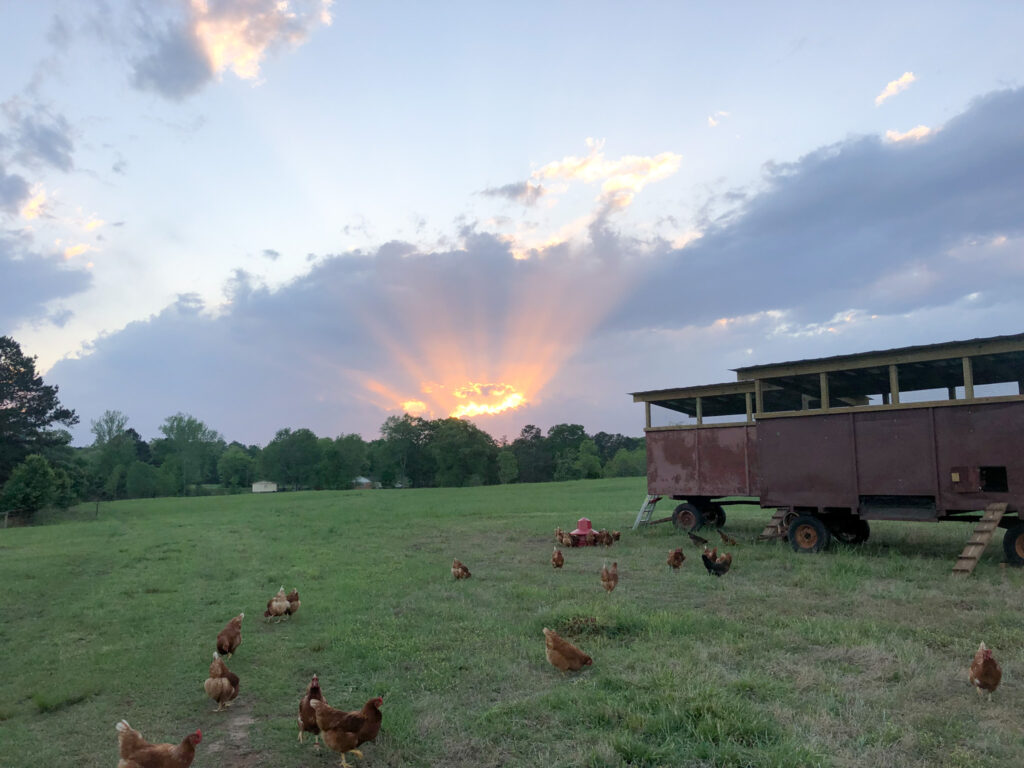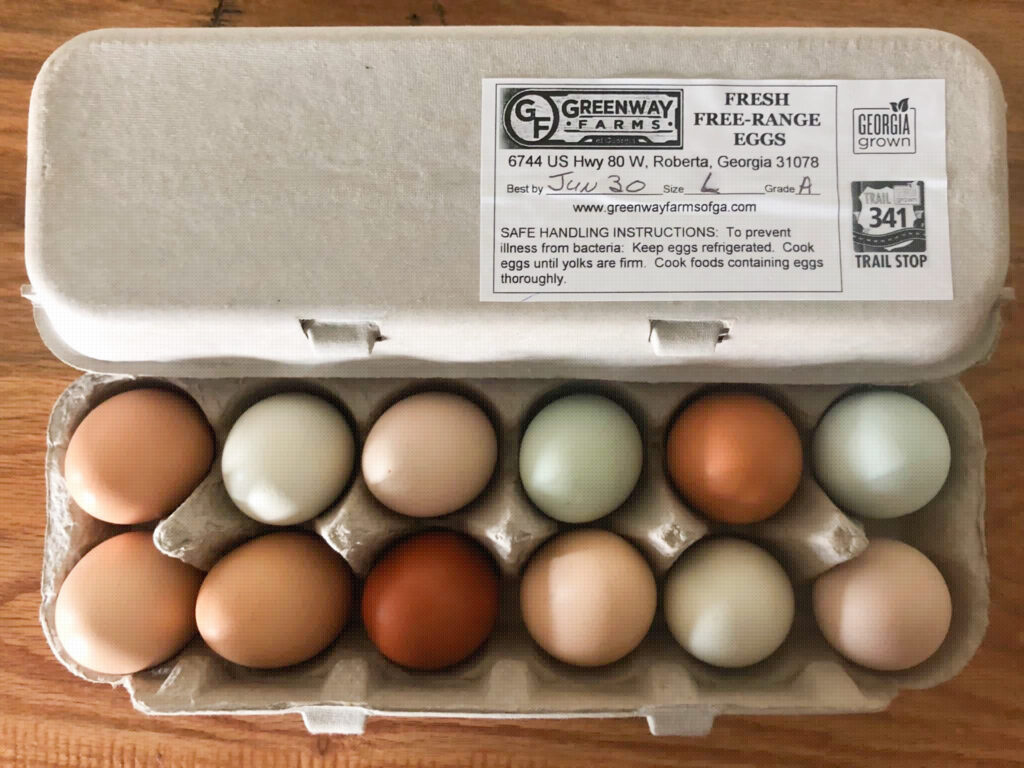By Cowgirl Candace
Stroll through the egg aisle at the local grocery store, and the sticker shock is hard to ignore. Egg prices have soared in recent months, leaving many Georgia families scrambling for affordable options. Supply chain disruptions, rising feed costs, and fluctuating demand have all contributed to the spike, making this popular breakfast food a strain on household budgets. But there’s a better way to get farm-fresh eggs without breaking the bank – turning to local farms.
The Price Hike Problem

Halstead Family Farms. Photo from farmer Nicki Halstead.
The U.S. Department of Agriculture predicted a nearly 40 percent increase in egg prices from 2024 – a direct result of inflation, avian flu outbreaks, and rising transportation costs. Grocery chains often rely on large-scale egg suppliers, meaning that when these disruptions occur, prices at the checkout counter soar. Consumers are left paying more for eggs that may have been sitting in storage for weeks before reaching their kitchens. “So in addition to the high prices, there’s this issue of old eggs,” said farmer Nicki Halstead of Halstead Family Farms in Barnesville, Georgia, “which could be up to 90 days old before they make it to your refrigerator. Our eggs don’t last a week because our customers want fresher, healthier options.” Nuzzled on 27 acres, Halstead Family Farms offers free-range eggs. A dozen cost $5 on site. Delivery: $6. Prices vary for Middle Georgia travel.
Why Local Farms Are the Answer

Greenway Farms of Georgia. Photo from farmer Joy Thomas-Hunt.
Local farms offer a fresher, more affordable, and community-driven alternative to grocery store eggs. By purchasing from nearby producers, consumers can support small businesses, reduce environmental impact, and enjoy eggs with richer flavor and higher nutritional value. “Our returning customers revisit us for two reasons,” said Steve Hunt, co-owner of Greenway Farms of Georgia in Roberta, Georgia, “We address their dietary needs, and they get to see the physical treatment of our animals – that they’re out in the sunshine and have plenty of grass.” Unlike mass-produced eggs that are shipped long distances, eggs from local farms go straight from the coop to the customer, ensuring peak freshness. Many small farms also prioritize sustainable and humane farming practices, raising their hens on pasture rather than in cramped factory conditions. This not only results in healthier, more nutrient-dense eggs but also supports ethical farming standards. Greenway Farms is a family agribusiness of two properties totaling 114 acres. Its market opens Saturdays only from 10 a.m. to 4 p.m. A dozen medium eggs: $5; large: $6; extra large: $7. “Our prices haven’t changed,” said Hunt.
Keeping Money in the Community

Farm Fresh Eggs from Greenway Farms.
Choosing local eggs isn’t just about saving money – it’s about investing in Georgia’s agricultural economy. Every purchase from a local farm helps sustain small farmers, allowing them to continue providing high-quality food to their neighbors. Plus, cutting out the middleman means farmers can offer competitive prices, making farm-fresh eggs an accessible option for budget-conscious shoppers. “Because of community support, we’ve been active for the past 15 years,” said Halstead. “We also receive local opportunities to collaborate with other small businesses in the area.”
A Better Farm-to-Fork Way Forward
So, the good news? Fresh, locally sourced eggs don’t require looking too far. Farmers’ markets, roadside stands, community-supported agriculture (CSA) programs, and direct farm purchases are excellent ways to get high-quality eggs while supporting local agriculture. Many farms also offer egg subscriptions or pickup services, making it easier than ever to buy direct. As grocery store prices continue to fluctuate, Georgia consumers have the power to make a change one carton at a time. By choosing local farms, they can enjoy fresher, healthier eggs while strengthening their community’s agricultural future. So, next time eggs are on the grocery store list, skip the big-box store, and look to the farmers who are keeping Georgia’s breakfast tables stocked the right way. “Once you taste pasture-raised chicken,” said Greenway Farms co-owner Joy Thomas-Hunt, “you will realize it’s a world of a difference.”
Cowgirl Candace is a fourth-generation cowgirl and award-winning communicator based in the Georgia Black Belt Region. The print-to-digital journalist has contributed to and collaborated with brands like the U.S. Department of Agriculture, Justin Boots, Wrangler, Cowboys & Indians Magazine, USA Today: 10 Best, National 4-H Council, REI Co-op, Patagonia, and Visit Fort Worth.







